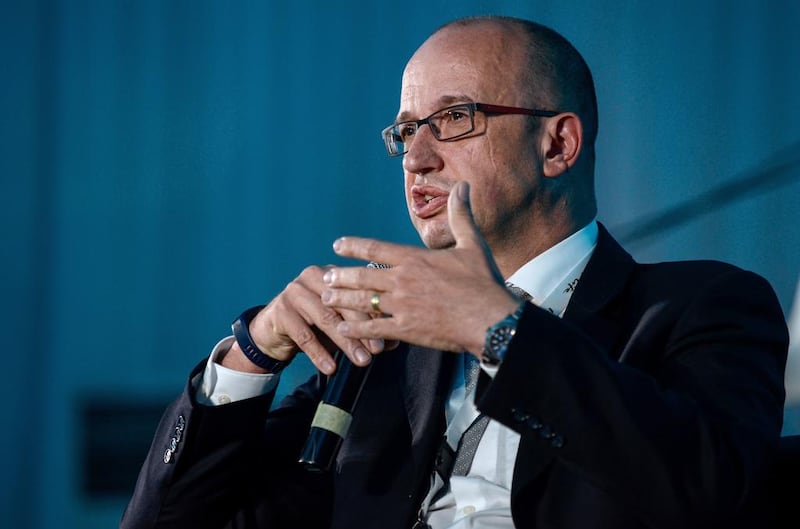CAIRO // The pricing and financing for the three Siemens power plants, apart from the speed of their physical implementation, were also something of a milestone for Egypt.
Once the €6 billion (Dh25.03bn) contract for the turbine power plants was signed on June 3 last year, the state-owned Egyptian Electricity immediately mandated international and local banks to raise the finance.
Dietmar Siersdorfer, Siemens’ Middle East chief executive, says the Egyptian government had negotiated an exceptionally low price for the three power plants, which was the biggest order in Siemen’s history.
“There have been projects contracted in the past. When you look and dig into the data you find out that they are all in the range of U$700 to $900 per kilowatt. We [in Egypt] are below $500 per kilowatt,” he says.
“You can imagine that the president, who was mentioned … as a very good negotiator, made a very good deal when he negotiated last year in Sharm El Sheikh for this deal.
“So it’s really something that is shaking up the industry in terms of pricing. It was a very competitive pricing, not seen in this country or anywhere else.”
Siemens and the Egyptian government brought in Deutsche Bank, HSBC and KfW IPEX-Bank to structure and arrange the international portion of the financing undertaken by Siemens and the local partner, Orascom Construction.
It also brought in export credit agencies (ECA) to secure the facilities, something that has not been done in Egypt for years, Mr Siersdorfer says.
“What we brought, and I think this is a very unique thing that hasn’t happened for a long time any more in Egypt, was that there was an ECA coverage financing. So Euler Hermes [a French credit insurance company] gave an ECA coverage for the project, and that made it viable for the banks to go for the project,” Mr Siersdorfer says.
In the meantime, local banks were brought together to finance the Egyptian pound portion of the costs. “The local currency in this project is almost 27 per cent. We are talking about €6bn, the whole project price,” or almost 11bn Egyptian pounds, says Gaber Desouky, the chairman of Egyptian Electricity.
“The National Bank of Egypt financed the local currency, most of it from local banks, with National the lead manager.”
The loan agreements for the Beni Suef power plant were signed on November 15 and closed on December 30. Egypt’s Finance Ministry guaranteed the loans.
“It was very complicated. But we finalised the financial part of this project. We started in about June, and we ended financial closure in December. And this is fantastic and very fast,” Mr Desouky says.
“We have done all the social impact requirements. Also, all the environmental impact requirements. When we take any loan, we have a grace period for three years, at least, and also repayment in 12 years. And this we must reach, and we committed to pay at this amount.
And this is backed by a sovereign guarantee from the central bank and from the Ministry of Industry.”
The credit facilities for the other two plants, at Burullus and New Capital, were signed on March 9 and closed on March 31.
It was all done with unusual urgency from the Egyptian side to overcome bureaucracy and meet closing deadlines.
In the end, 17 banks had joined the international consortium to the financing of the three power plants at a price said to have been well below that of the Egypt sovereign bond rate.
“I think there was a real big effort by the governments, by Siemens and by our partners to make this happen,” says Mr Siersdorfer.
business@thenational.ae
Follow The National's Business section on Twitter





